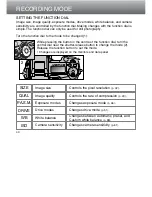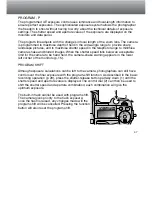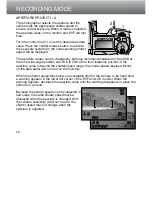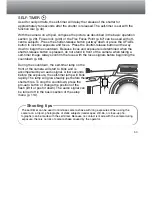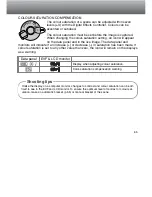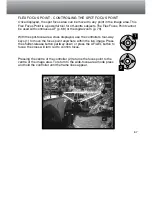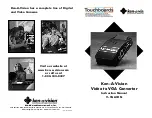
53
The self-timer can be used to minimise camera shake with long exposures. When using the
camera on a tripod, photographs of static subjects (landscapes, still-life, or close-up pho-
tographs) can be made with the self-timer. Because no contact is made with the camera during
exposure, there is no risk of camera shake caused by the operator.
Shooting tips
Used for self-portraits, the self-timer will delay the release of the shutter for
approximately ten seconds after the shutter is released. The self-timer is set with the
function dial (p. 40).
With the camera on a tripod, compose the picture as described in the basic operation
section (p. 29). Focus lock (p.30) or the Flex Focus Point (p. 67) can be used with off-
centre subjects . Press the shutter-release button partway down or press the AF/AEL
button to lock the exposure and focus. Press the shutter-release button all the way
down to begin the countdown. Because focus and exposure is determined when the
shutter-release button is pressed, do not stand in front of the camera when taking a
self-timer image. Always confirm the focus with the focus signals before beginning the
countdown (p. 68).
During the countdown, the self-timer lamp on the
front of the camera will start to blink and is
accompanied by an audio signal. A few seconds
before the exposure, the self-timer lamp will blink
rapidly. The lamp will glow steadily just before the
shutter fires. To stop the countdown, press the
pro-auto button or change the position of the
flash (lift it or push it down). The audio signal can
be turned off in the basic section of the setup
menu (p. 114).
SELF-TIMER
Summary of Contents for Dimage 5
Page 1: ...9224 2773 11 H A106 INSTRUCTION MANUAL E ...
Page 149: ......


